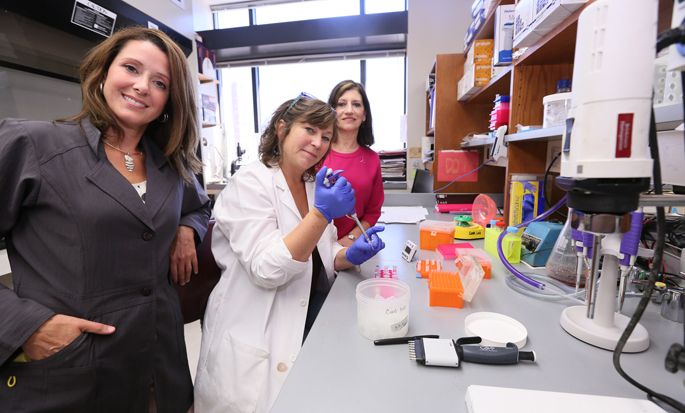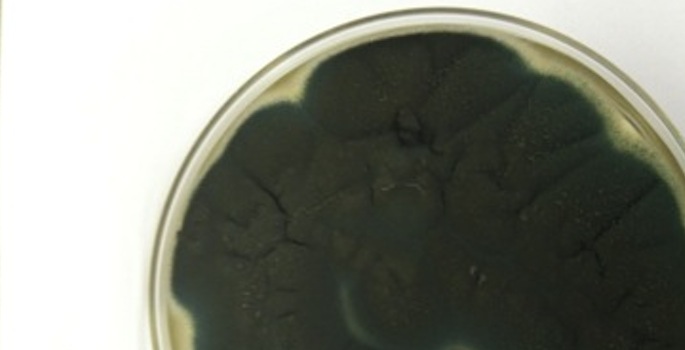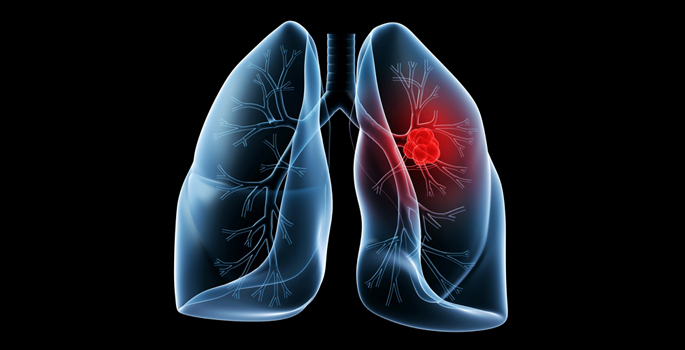Health And Medicine
-

Risk of death in the ICU
The irregular heart rhythm atrial fibrillation increases the risk of death in patients in the intensive care unit. Read MoreOct 15, 2015
-

VUSN Alzheimer’s study to explore perception of pain
Vanderbilt University School of Nursing (VUSN) has been awarded a four-year $660,633 grant from the National Institute of Health’s National Institute on Aging to study how psychophysical responses to acute experimental thermal pain differ between older adults with and without Alzheimer’s Disease (AD). Read MoreOct 15, 2015
-

Joint injections speed knee replacement recovery: study
Another non-opioid option besides nerve blocks works better for patients recovering from knee replacement surgery, according to a study by Andrew Shinar, M.D., associate professor of Orthopaedic Surgery and Rehabilitation. Read MoreOct 15, 2015
-

Major grant boosts AIDS education, training efforts
Vanderbilt University has been awarded a major federal grant — $16 million over four years — to coordinate AIDS education and training efforts in Tennessee and seven other southeastern states. Read MoreOct 8, 2015
-

Creech to direct Vanderbilt Vaccine Research Program
Buddy Creech, M.D., MPH, associate professor of Pediatrics, has been named director of the Vanderbilt Vaccine Research Program (VVRP) in the Division of Pediatric Infectious Diseases. Read MoreOct 8, 2015
-

Komen, VICC partnership bolsters breast cancer research
For more than twenty years, Vanderbilt-Ingram Cancer Center’s (VICC) primary source of outside funding has been provided by the National Institutes of Health. But in breast cancer, Susan G. Komen, a nonprofit dedicated to breast cancer research and community services, has been a significant sponsor of research and patient care support. Read MoreOct 8, 2015
-

Depression poses heart risk for HIV patients: study
The first study to suggest that major depressive disorder (MDD) is an independent risk factor for heart failure in HIV-positive adults has been published in Circulation. Read MoreOct 8, 2015
-

Study shows compression device helps ease lymphedema
Lymphedema patients saw a nearly 80 percent reduction in cellulitis episodes by using an advanced pneumatic compression device at home, according to a study in JAMA Dermatology co-authored by Vanderbilt University School of Nursing’s Sheila Ridner, Ph.D., and University of Minnesota School of Public Health Associate Professor Pinar Karaca-Mandic, Ph.D. Read MoreOct 8, 2015
-

Rational design of novel antifungals
Structural and molecular details of an anti-fungal target's interaction with inhibitors suggest ways to design better treatments for fungal infections. Read MoreOct 7, 2015
-

Flu vaccine helps reduce hospitalizations due to influenza pneumonia: study
More than half of hospitalizations due to influenza pneumonia could be prevented by influenza vaccination, according to a study led by investigators at Vanderbilt University Medical Center, published this week in the Journal of the American Medical Association. Read MoreOct 6, 2015
-

Potential target for lung cancer therapy
The glutamine transporter protein appears to contribute to the survival of lung cancer cells, suggesting it may be a useful diagnostic biomarker and target for therapies. Read MoreOct 5, 2015
-

The yin and yang of COX-2
New findings add to the understanding of how the enzyme COX-2 works, which is critical to the development of COX-2-targeted anti-inflammatory drugs. Read MoreOct 2, 2015
-

Major grant to transform region’s clinical practices
Vanderbilt University has received a contract from the Centers for Medicare and Medicaid Services (CMS) for up to $28 million over four years to help more than 4,000 clinicians in the Southeast transform their clinical practices in ways that improve quality of patient care and hold down costs. Read MoreOct 1, 2015
-

Collaboration seeks to develop new therapies for bone, other diseases
La Jolla Pharmaceutical Co. and Vanderbilt University have signed a research and license agreement covering Vanderbilt’s research program and intellectual property rights related to compounds that block bone morphogenetic protein (BMP) type-I receptors. The compounds have therapeutic potential in a broad range of diseases, including rare genetic disorders. Read MoreOct 1, 2015
-

Tolerating a transplant
A new genetic model has generated new strategies for promoting tolerance to transplants – and improving long-term transplant outcomes – in the background of autoimmune disease. Read MoreOct 1, 2015
-

Study shows decline in opioid use among preoperative patients
Declining use of prescription painkillers among preoperative patients seeking joint replacements indicates efforts by the state of Tennessee to tighten the spigot on opioids are beginning to have an impact, according to a study by Vanderbilt’s Andrew Shinar, M.D. Read MoreOct 1, 2015
-

Reduced-nicotine cigarettes decreased dependence and frequency of smoking: NEJM study
Reduced-nicotine cigarettes were beneficial in reducing nicotine exposure and dependence, and also the number of cigarettes smoked per day, when compared with standard-nicotine cigarettes in a six-week study published in the New England Journal of Medicine. Read MoreSep 30, 2015
-

Theatre program benefits children with autism: study
Children with autism who participated in a 10-week, 40-hour, theatre-based program showed significant differences in social ability compared to a group of children with autism who did not participate, according to a Vanderbilt study published in the Journal of Autism and Developmental Disorders. Read MoreSep 30, 2015
-

Study tracks brain’s trigger for overeating high-fat food
Disruptions in a specific signaling pathway in the brain can cause overeating of high-fat food, researchers at Vanderbilt University have found. Read MoreSep 24, 2015
-

Survivors of Ebola outbreak take part in VUMC vaccine study
Two survivors of a 2014 Ebola outbreak in Nigeria visited Vanderbilt University Medical Center last week to share their experiences and participate in a study aimed at finding ways to treat the often-fatal infection. Read MoreSep 24, 2015